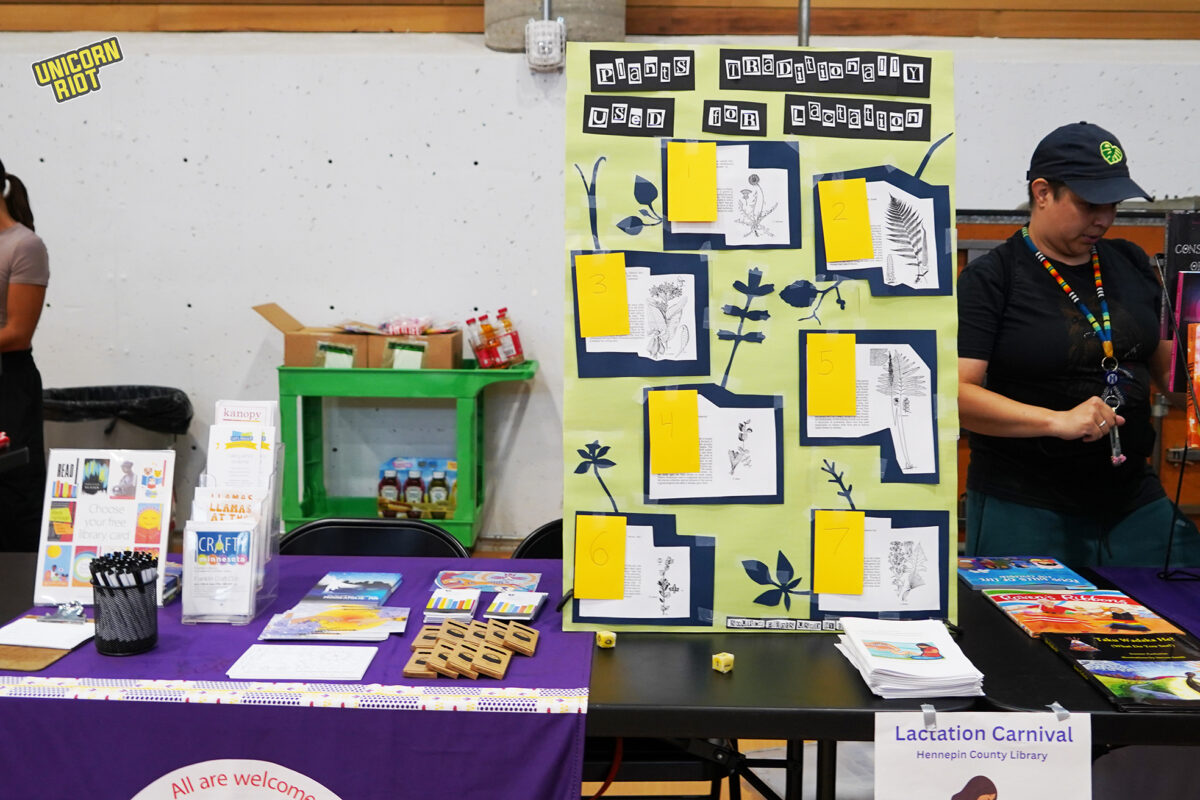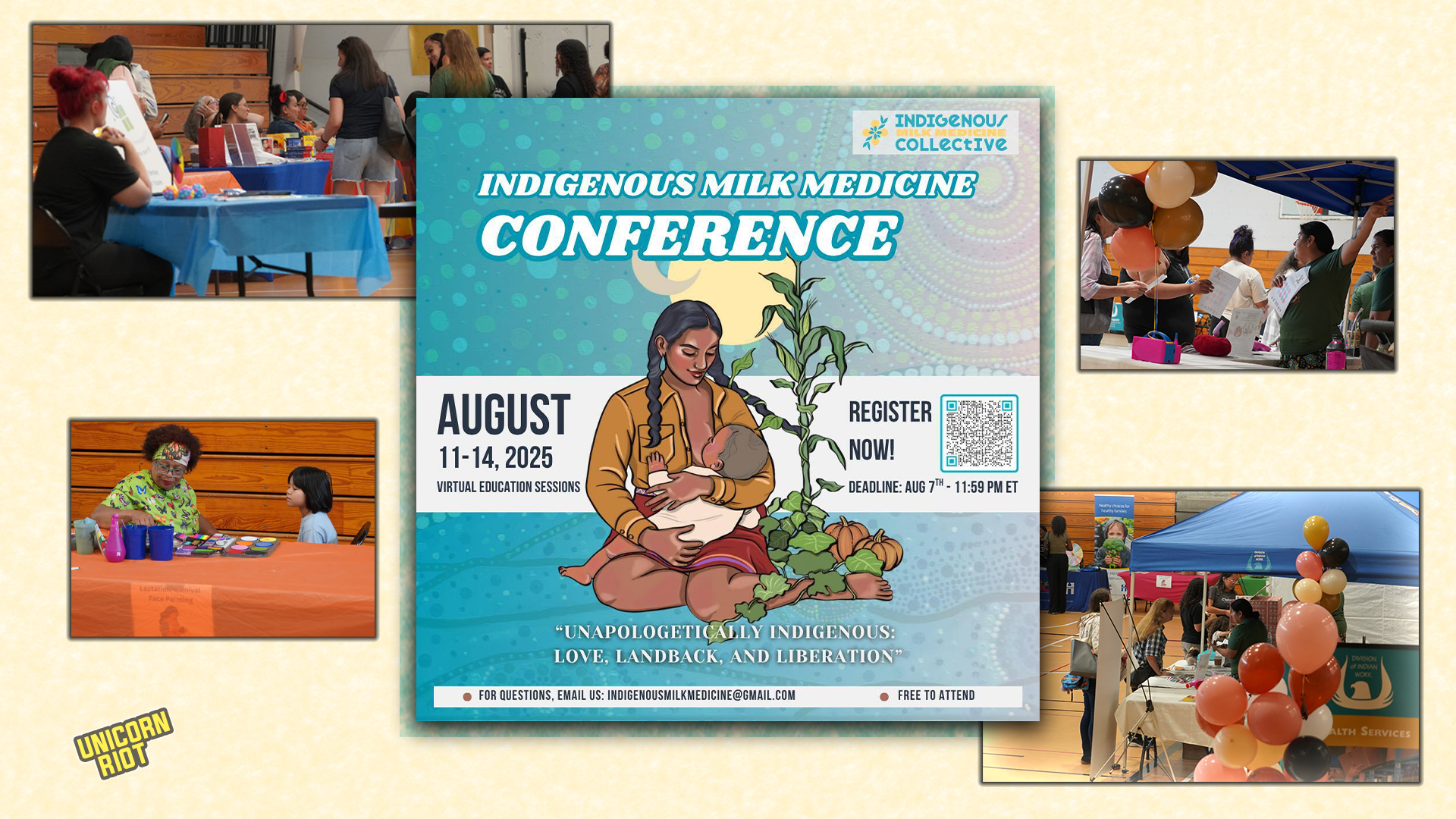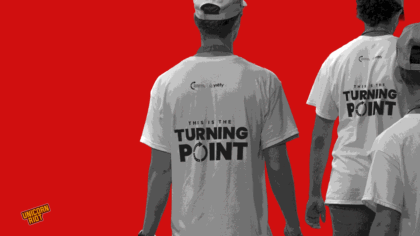How Indigenous Milk Medicine Week Creates Healthy Communities
Minneapolis, MN – On Thursday, August 14, 2025 the Division of Indian Work hosted the annual Indigenous Milk Medicine Week carnival at the Minneapolis American Indian Center during National Breastfeeding Month. The week is part of a national effort to recognize and normalize Indigenous lactation rights. The festivities ran from August 8-14 and this year Governor Tim Walz proclaimed the week Indigenous Milk Medicine Week in Minnesota.
The carnival on Thursday provided games, resources, activities, music, prizes, food and drink, a dunk tank, and bingo.


Since the rise in popularity of baby formula in the 1950s and 60s, formula has been pushed onto families and especially in Native communities as the easiest and best option when it comes to how parents feed their newborns. In these conversations, parents are not given the knowledge they need to make an informed decision and birthgivers do not feel like they have the agency to ask questions about their own bodies.
Breastfeeding has shown to be a form of prevention and has many positive health benefits regarding mental, physical, and emotional health. Benefits for the person lactating include reducing the risk of breast cancer, depression, diabetes, and it also promotes a stronger bond between parent and child.
For babies, breastmilk contains the vitamins and nutrients that they need to grow and reduces the risk of obesity and ear infections.
Barriers to breastfeeding are not exclusive to Indigenous people but they do often have far less resources and support from family or health care providers. Another barrier Indigenous birthgivers face is those who are new in recovery often feel shame around the topics of pregnancy and don’t feel that they are met with compassion.
It is also important to acknowledge that breastfeeding does not come easy to everyone, it takes time, patience, support, and knowledge.

The purpose of Indigenous Milk Medicine Week is to acknowledge these barriers and provide families with the resources and knowledge to make informed decisions, giving people bodily autonomy.
Another aspect of this celebration of life is to bring together community and normalize the practice of breastfeeding once again. By coming together communities can help heal the wounds that colonization has brought forth.
This year’s theme was Unapologetically Indigenous: Love, Liberation, and Landback.
“Liberation is the ongoing struggle for self-determination and the reclamation of our right to practice traditional birthkeeping and lactation, ensuring our people are free to live in health and balance.”
Indigenous Milk Medicine Collective
The host of the Minneapolis carnival, Division of Indian Work, is a resource hub for Native families and contains many organizations within the building that serve Native families, youth, teens, and elders. They have a food shelf that is open to the Native community and provide healthy traditional meals to those who participate in their programs.
Within that hub, and the main organizers of the carnival, is the Ninde Doula Program.
Ninde (translates to “my heart” in Ojibwemowin) first started training doulas in 2016, during the rise of the opioid epidemic where community members in Minneapolis saw a rise in families being affected by addiction.

Doulas at Ninde are professionally trained to assist Native families from across Turtle Island (North America) emotionally, physically, and spiritually from the first stages of pregnancy till the postpartum healing process. First started in the Twin Cities, Ninde has now trained doulas that reside all over the state as far as the Red Lake Nation.
Although programs like Ninde could be seen as radical, rolls such as these are not new to Indigenous people. Prior to colonization these rolls were often taken on by aunties in the community. Programs like Ninde are an incredibly important way to reclaim ties of kinship, provide families with the support and information they deserve, and build a healthier community.
All images contributed by Wabigonikwe Raven. Cover image via Niko Georgiades for Unicorn Riot.
Follow us on X (aka Twitter), Facebook, YouTube, Vimeo, Instagram, Mastodon, Threads, BlueSky and Patreon.
Please consider a tax-deductible donation to help sustain our horizontally-organized, non-profit media organization:



